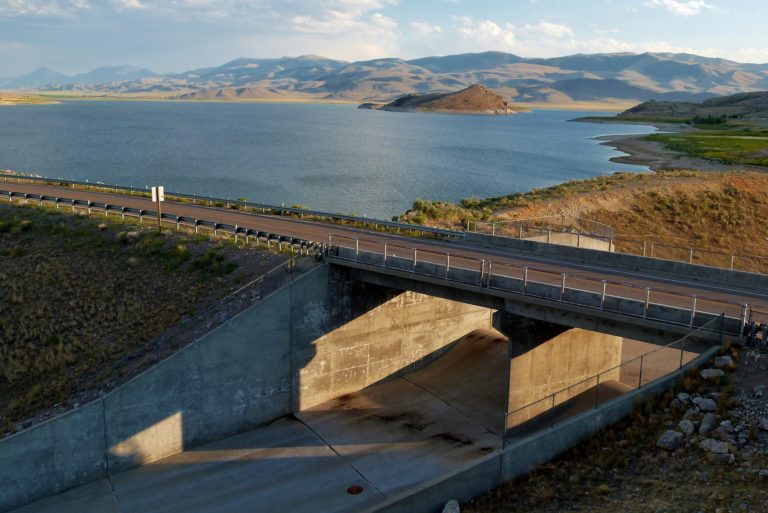
“In the West, it is said, water flows uphill toward money. And it literally does, as it leaps three thousand feet across the Tehachapi Mountains in gigantic siphons to slake the thirst of Los Angeles, as it is shoved a thousand feet out of Colorado River canyons to water Phoenix and Palm Springs and the irrigated lands around them.” – Marc Reisner, Cadillac Desert: The American West and Its Disappearing Water
“And who pays for this stupendous engineering feat? The taxpayer, of course, thanks to sweetheart deals hatched in back rooms and rammed through state and federal legislatures by lawmakers eager to demonstrate that they were on the side of ‘progress.’” – Mark Hertsgaard, The Daily Beast
Since May of this year, Congress has opened the floodgates to a raft of new bills whose goal is to speed the approval and construction of new dams and the re-licensing and expansion of old dams, diversions and reservoirs. These bills would cause harm to our waterways and the communities, economies and wildlife that depend on them. They also threaten our open and participatory democratic process by cutting stakeholders out of the process.
Although all of the bills proposed since this Congress convened have different and seemingly innocuous names, they all share a common purpose. Whether the Water Supply Permitting Coordination Act, the Hydropower Policy Modernization Act, the Bureau of Reclamation Water Project Streamlining Act, or the Gaining Responsibility on Water Act, they all have one goal: to facilitate the construction or expansion of more dams and other major water infrastructure projects at taxpayer expense.
Yet, expediting the construction of this kind of infrastructure takes us in exactly the wrong direction at a time when we most urgently need to move towards efficiency, conservation and river restoration.
Dams, diversions and reservoirs have a lengthy list of impacts, including,
- Destroyed fisheries, significantly harming commercial, recreational and tribal interests.
- Damage to critical river habitat, adjacent floodplains and wetlands.
- Loss of water from increased evaporation in reservoirs and conveyance features.
- Heightened impacts to threatened and endangered species, including half of California’s remaining freshwater fish species.
- Significant reduction in biodiversity, while facilitating the invasion of non-native species.
- Sediment build up behind dams, which is frequently contaminated.
- Violations of long-standing treaty agreements with Native American tribes that have now begun to assert their sovereignty.
- High costs to repair, replace or relocate existing infrastructure, which in some cases exceed the profit from the electricity the dam generates.
- Emissions of greenhouse gasses driving climate change.
Despite our increased understanding of the harm dams cause to rivers, communities, and local economies, some legislators are attempting to solve our fundamental problem—increased competition for the limited and shrinking water resources—by building more mid-20th-century era, federally-funded mega-projects. But, as explained by former Bureau of Reclamation Commissioner Dan Beard in July 2017, building new water infrastructure projects like dams, pipelines and diversions is “the least effective way to address today and tomorrow’s problems. We are not going to build our way out.”
This week, we ask you to raise your voice for free-flowing rivers by calling your congressional representatives and asking them to oppose all legislation that would fast-track the construction of more dams, diversions and similar water mega-projects at taxpayer expense, while severely restricting the public’s ability to weigh in before projects are approved. Clean water and our rivers that we depend on to supply it are too important to sacrifice to special interests.
“My name is [YOUR NAME] and I am a resident of zip code [ZIP CODE]. I am calling today to express my concern about and opposition to a number of bills introduced in this session of Congress whose goal is to fast-track dams, diversions and similar water mega-projects and limit public participation before projects are approved. Water is a vital and precious resource. We must be thoughtful and creative in implementing solutions to the water challenges we face for future generations. Those challenges will not be solved by construction of more water mega-projects, at significant taxpayer expense and to the detriment of adequate and clean water for our communities and our free-flowing rivers. Specifically, please oppose the Water Supply Permitting Coordination Act (Senate Bill 677) and the Hydropower Policy Modernization Act (HR 3043 and Section 3001-3010 of Senate Bill 1460).”
[CongressLookup]